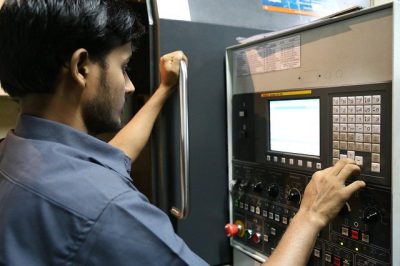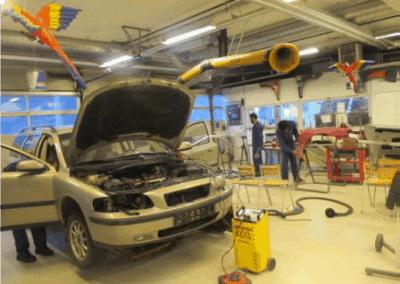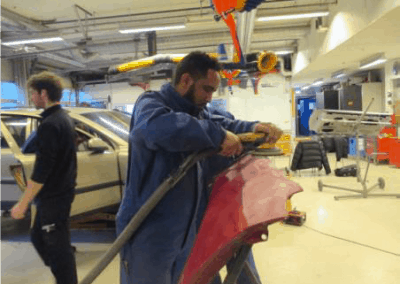2018: Improving Practical Stages of Pupils in the Field of Mechanics (*)

Project promoter: „Mihail Sturdza“ Technical College (CTMS) Iasi
Project partner: S.C.CHAMBON S.R.L.
The hosting organisation: Kvadraturen Skolesenter, Kristiansand, Norway
Project Code: 2018-EYPVET-R1-0003
General objective of the project:
Improve the traineeship placements for mechanics to empower the labour force with professional skills in line with labour market needs in order to increase employability opportunities for graduates
The project aims to strengthen the collaboration with economic operators to maximise their traineeship offer, to support the professional development of teachers and tutors, and the development of tools for evaluating learning outcomes through practice at the workplace.
The project provided for a 5-day study visit to the Kvadraturen School Centre in Kristiansand, Norway. It was attended by the director in charge with developing the partnership with economic operators, the technical office coordinator in the CTMs, 5 teachers teaching special modules for level 3 mechanics and an English teacher. 2 representatives from the partner’s economic operator in the project took part in the study visit.
The local project activities involved 14 teachers teaching specialised modules, 86 pupils (IXth form), and 56 pupils (Xth form) in vocational education. 12 economic agents and 10 VET schools in the Iasi county have been involved in dissemination activities.
Impact:
- Training of specialised teachers for the development of new teaching strategies and the development of homogeneous working tools, as well as empowering tutors with methodological and pedagogical skills, will improve the learning outcomes of students, which will increase the relevance of the vocational training process and increase the employability of graduates.
- For practical training in line with labour market requirements, the partnership with the economic environment will be strengthened. This will allow diversifying and strengthening forms of work-based learning in line with the evolution of technological change. Strengthening the collaboration with economic operators will also increase the number of classes of dual vocational education, which will better link the school’s offer to the need for qualification in the economic environment, but will also motivate the students, offering equal opportunities in the vocational training process, regardless of background.
- The results of the project are embedded in the school’s strategy to become a strong training centre for mechanics. Linking up the partnership with economic agents and the professional development of teachers and tutors through this project, with the upgrading of the learning of the specialised modules foreseen in other projects where the school is involved, will be better matched with the skills acquired by graduates according to the labour market requirements. Thus, the school will become an more attractive alternative for students, offering them job opportunities, which will increase the role of the CTMS in the local community.







